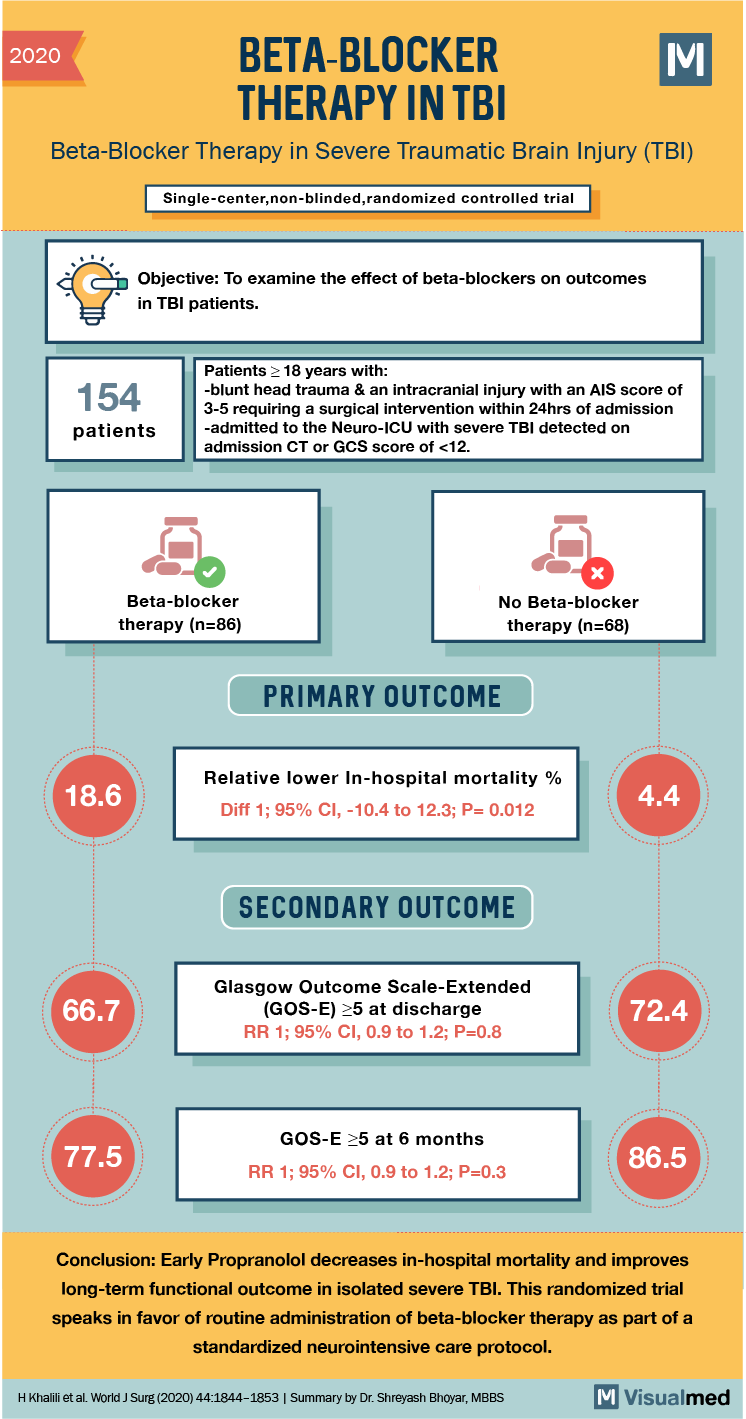
2020 BETA-BLOCKER THERAPY IN TBI Beta-Blocker Therapy in Severe Traumatic Brain Injury (TBI) Single-center,non-blinded,randomized controlled trial d d Objective: To examine the effect of beta-blockers on outcomes in TBI patients. 154 patients Patients > 18 years with: -blunt head trauma & an intracranial injury with an AIS score of 3-5 requiring a surgical intervention within 24hrs of admission -admitted to the Neuro-ICU with severe TBI detected on admission CT or GCS score of <12. Beta-blocker therapy (n=86) No Beta-blocker therapy (n=68) PRIMARY OUTCOME 18.6 Relative lower In-hospital mortality % Diff 1; 95% CI, -10.4 to 12.3; P=0.012 44 SECONDARY OUTCOME 66.7 Glasgow Outcome Scale-Extended (GOS-E) >5 at discharge RR 1; 95% CI, 0.9 to 1.2; P=0.8 72.4 77.5 GOS-E >5 at 6 months RR 1; 95% CI, 0.9 to 1.2; P=0.3 86.5 Conclusion: Early Propranolol decreases in-hospital mortality and improves long-term functional outcome in isolated severe TBI. This randomized trial speaks in favor of routine administration of beta-blocker therapy as part of a standardized neurointensive care protocol. H Khalili et al. World J Surg (2020) 44:1844-1853